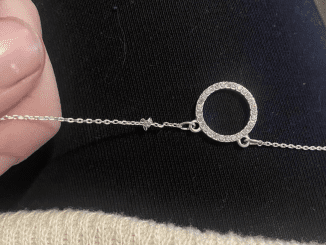In December 2020, Elliot Page, widely recognized for his roles in Juno and The Umbrella Academy, made a heartfelt announcement on Instagram, sharing his truth with the world: “Hi friends, I want to share with you that I am trans, my pronouns are he/they and my name is Elliot.” This moment marked a significant step in Page’s personal journey, and since then, he has been open about the experiences and challenges of navigating life as a transgender man. One aspect he has candidly discussed is how he responds when someone misgenders him, offering a thoughtful perspective that can serve as a guide for both the transgender community and their allies.
Coming Out: A Public Declaration of Identity

When Elliot Page publicly came out as transgender, it was more than just a personal revelation; it was a powerful statement of self-acceptance and authenticity. In his Instagram post, Page expressed the joy and liberation he felt in embracing his true identity, saying, “I love that I am trans. And I love that I am queer. And the more I hold myself close and fully embrace who I am, the more I dream, the more my heart grows, and the more I thrive.”
This announcement resonated deeply with many, particularly within the LGBTQ+ community, as it highlighted the importance of living one’s truth, despite the challenges that may arise. Page also addressed the harsh realities faced by trans individuals, acknowledging the adversity, harassment, and violence that many endure daily. His message of solidarity and his commitment to advocacy have since been central to his public persona.
The Challenge of Misgendering: Understanding Its Impact
Misgendering, or referring to someone with incorrect pronouns or gendered language, is an experience that many transgender people encounter. Elliot Page, in various interviews, has shared his approach to dealing with misgendering, emphasizing that while it can be frustrating, the intent behind it often matters more than the mistake itself.
In an interview with The Guardian, Page discussed a scene from his film Close to You, where his character corrects his onscreen mother after being misgendered. Page explained that while this was a genuine slip of the tongue, it was handled with grace because it was unintentional. “I feel weird because I get misgendered all the time, and I don’t care unless someone’s trying to…” he shared, highlighting his focus on the intent behind the action rather than the action itself.
This approach reflects Page’s understanding and patient demeanor, recognizing that while mistakes happen, they don’t always need to be magnified unless they come from a place of malice. His decision to not dwell on unintentional misgendering speaks volumes about his resilience and ability to navigate these situations with grace.
Family and Misgendering: Navigating Personal Relationships

Elliot Page has also touched on the topic of misgendering within his own family, particularly with his mother, Martha Philpotts. In his conversations, Page has expressed understanding and patience towards his mother’s occasional slip-ups with his pronouns. “She’s pretty good. I’m like, ‘Of course, it’s going to take you a second, Mom. It’s fine. You don’t need to beat yourself up about it!’” Page’s response to his mother’s mistakes illustrates the importance of empathy and patience within personal relationships, especially during transitions.
For many transgender individuals, the process of coming out and being recognized by their true identity can be challenging, not just for themselves but for their loved ones as well. Page’s attitude towards his mother’s learning curve is a testament to the understanding that transitioning is a journey for everyone involved, and it takes time and effort from all parties to adjust fully.
The Importance of Intent: Forgiving Honest Mistakes

Elliot Page’s approach to misgendering is rooted in the belief that the intent behind an action is crucial. In an interview with Variety in September 2023, Page spoke about how he perceives misgendering, particularly when it comes from those close to him. “In those situations, I know the intent of people close to me in my life who are wanting to get it right. If someone misgenders me, I don’t take it personally.”
This perspective is powerful because it focuses on the intent and effort to respect his identity, rather than solely on the mistake. Page acknowledges that while apologies for misgendering are important, they should not overshadow the interaction itself. “When someone does go to apologize, it’s great. But let’s move on to the next moment in our interaction. Let’s move on before it turns into a bigger thing and becomes about the person who did the misgendering and turns into this whole other energy,” he continued.
Page’s emphasis on moving forward rather than dwelling on mistakes serves as a reminder that the focus should be on the continued respect and recognition of one’s identity, rather than on the occasional errors that might occur along the way.
Advice for Allies: Educate Yourself and Support with Care

As a public figure and advocate, Elliot Page has also offered valuable advice for those who wish to be better allies to the transgender community. Understanding that mistakes can happen, Page encourages allies to take the time to educate themselves about transgender issues and experiences. “For me, it’s about people taking individual time to educate themselves,” he said. “There are a lot of resources out there to learn more about trans people and the reality of our experiences.”
Page also emphasized the importance of context and tone when asking questions or engaging in conversations about transgender issues. While questions aren’t inherently negative, they should be approached with sensitivity and respect. By taking the initiative to learn and understand, allies can provide more meaningful and informed support, creating a more inclusive and accepting environment.
Close to You: Reflecting Real-Life Experiences

In Close to You, Elliot Page’s character, Sam, navigates the complexities of returning to his family home after transitioning. The film explores themes of identity, family dynamics, and the challenges that come with being true to oneself in a world that doesn’t always understand. Page’s portrayal of Sam is deeply personal, drawing from his own experiences and offering a nuanced view of what it means to live authentically.
The film’s exploration of misgendering and the subsequent correction is a powerful narrative tool that highlights the importance of respect and understanding in personal relationships. It serves as a reminder that while mistakes can happen, it is the intention to support and respect someone’s identity that truly matters.
Elliot Page’s journey as a transgender man is one marked by courage, understanding, and a deep commitment to advocacy. His approach to handling misgendering is a lesson in grace, focusing on the intent behind actions and the importance of moving forward with empathy and respect. As Page continues to share his experiences and insights, he offers valuable guidance for both the transgender community and their allies, emphasizing the power of education, understanding, and unwavering support


